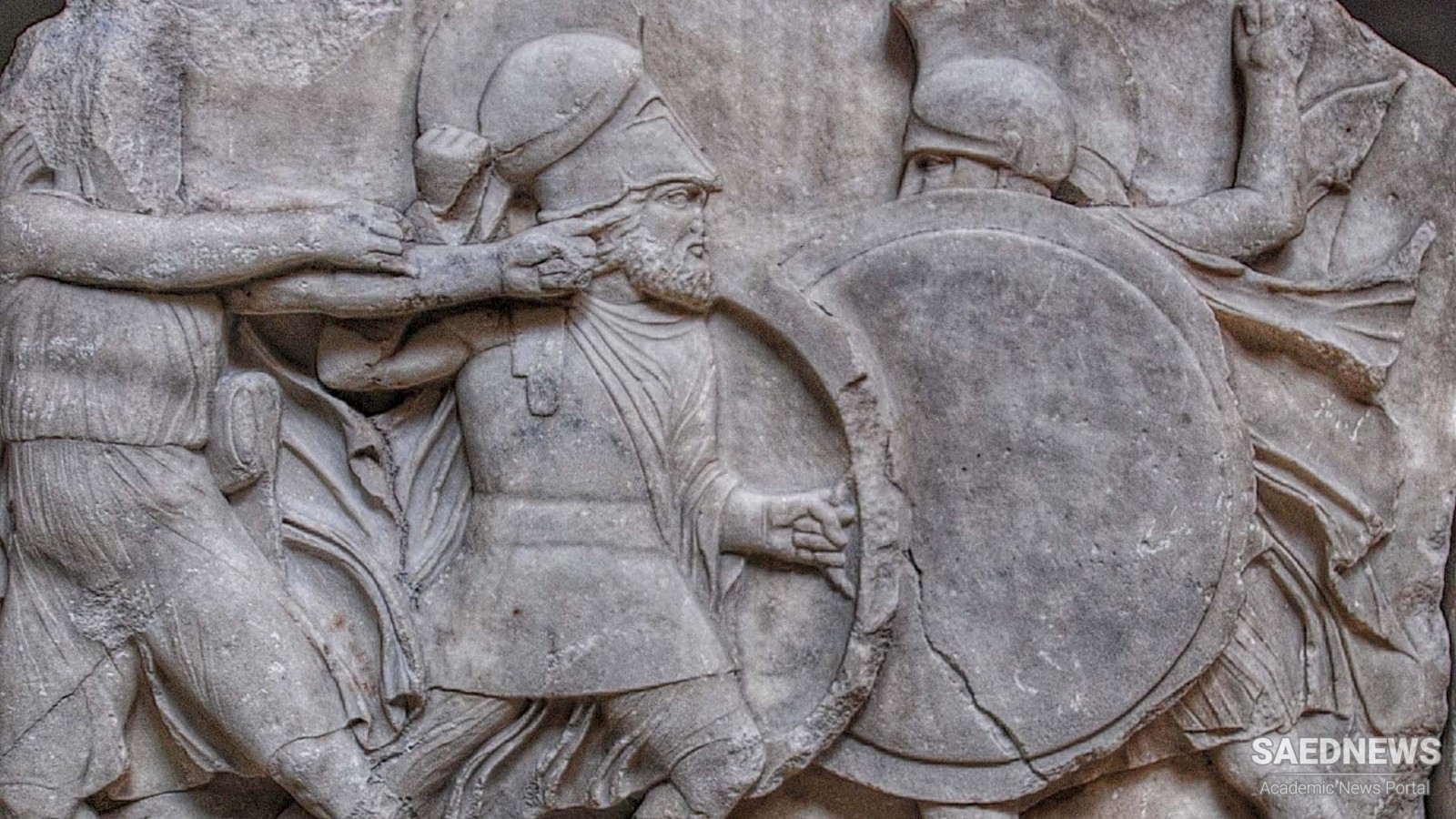Moving from Eastern to Western antiquity, we find the familiar presumption of the legitimacy of war among ancient Greeks. Heraclitus, a pivotal pre-Socratic thinker at the turn of the sixth and fifth centuries BCE, tells us that “war is the father and king of all”. Strife is a fundamental source of nature for Heraclitus. The scant and fleeting harmony found in nature is due to tensions among conflicting natural beings. For the most part ancient Greeks took war for granted as natural and inevitable, and a culture of war and the warrior was central to the Golden Age.
The Peloponnesian War between Athens and Sparta began in 431 BCE and continued for nearly thirty years between the young Athenian democracy and the old Spartan oligarchy. The best thinkers of the time disapproved of the war. Thucydides thought it was a needless war of rival ambitions. He blamed both sides, recounting one particularly telling episode in which Athenian military leaders explain themselves to the people of Melos, islanders in the Aegean Sea who had tried to remain neutral in the Athens/Sparta war:
"You and we both know that in the discussion of human affairs the question of justice only enters where there is equal power to enforce it, and that the more powerful exact what they can and the weak grant what they must. . . . Your subjection will give us an increase in security as well as an extension of empire. For of the gods we believe and of men we know, that by a law of their nature, wherever they can rule they will. This law was not made by us and we are not the first to have acted upon it. We did but inherit it and shall bequeath it to all time, and we know that you and all mankind, if you were as strong as we are, would do as we do."
With this as their justification, the Athenians destroyed Melos by killing all men of military age and enslaving the women and children. This is war realism, the position that morality is irrelevant in war. In matters of conflict, groups do what they can to prevail. Describing the civil war in Corcyra, Thucydides tells us that once war begins dire necessity takes over, bringing brutality. “War is a hard master, and most men grow to be like the lives they lead” (Thucydides: 175). While discussing the dominant view of war held by most ancient Greeks, Thucydides opens a critical examination of warism, the notion—often a presumption—that war is normal, natural, and morally acceptable.
The greatest ancient Greek playwrights took anti-war positions during the Peloponnesian War. In The Trojan Women, Euripides dramatizes the suffering of innocents with a veiled historical account from hundreds of years before the sacking of Melos. Contemporary Athenian audiences would have made the connection to the then recent Athenian massacre. Aristophanes, the great comic dramatist, wrote and produced Lysistrata (literally, “the peacemaker”), during the Peloponnesian War. In this sarcastic anti-war play, Lysistrata organizes Athenian women with a vow to withhold affection from men until the end of the senseless war. The play reflects gender roles associated with war and peace: the women want peace; the men do not. The consequences for the men prompt much laughter and provoke anti-war reflections. To this day readings of Lysistrata are held to protest nations as they launch themselves into war.


 History of Pacifism and Nonviolence Idea
History of Pacifism and Nonviolence Idea














































